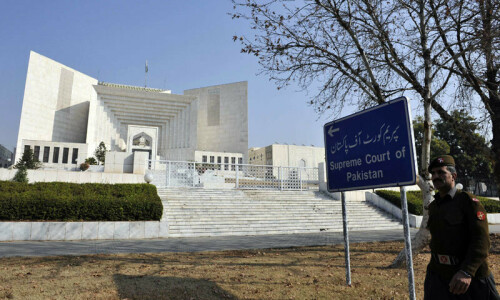JUDGES and lawyers are compensated to ensure citizens receive their rights within the framework of established law. It is their duty to utilise their skills and resources to resolve cases within the prevailing judicial system. However, there has been an unusual trend emerging in Pakistan under the guise of alternative dispute resolution (ADR). Some judges and prominent lawyers are active in promo-ting ADR, despite being representatives of the mainstream justice system. This is akin to visiting a qualified allopathic doctor only to be redirected to a quack. It is misplaced advocacy by those entrusted to uphold the system.
While alternative systems have their place, it is not the job of judges and lawyers to champion these approaches, especially when commercial forums and organisations are the ones promoting them through grand programmes domestically and internationally. If these sponsors were to withdraw their support, the fascination with ADR would likely dissipate.
Instead, stakeholders in the justice system should focus on strengthening the existing judicial framework. These should be the priority, not alternative forums.
Pakistan faces a severe shortage of courts and judges relative to its population, and there is little evidence of serious efforts to secure additional resources from the government to address this gap.
Many judicial positions remain unfilled, and people are routinely humiliated in courtrooms. Yet, rather than addressing these systemic problems, some judges seem more concerned with why people continue to rely on the courts.
Allowing the judges to participate in programmes organised by various ADR bodies poses a clear conflict of interest. These commercial arbitration insti-tutions market their services, including forums, trainings, accreditations and certifications. As such, this commercial entanglement compromises the critical impartiality of the judiciary. This is like privatising part of the justice system.
Prof (Dr) Aziz ur Rehman
Islamabad
Published in Dawn, September 25th, 2024










































Dear visitor, the comments section is undergoing an overhaul and will return soon.